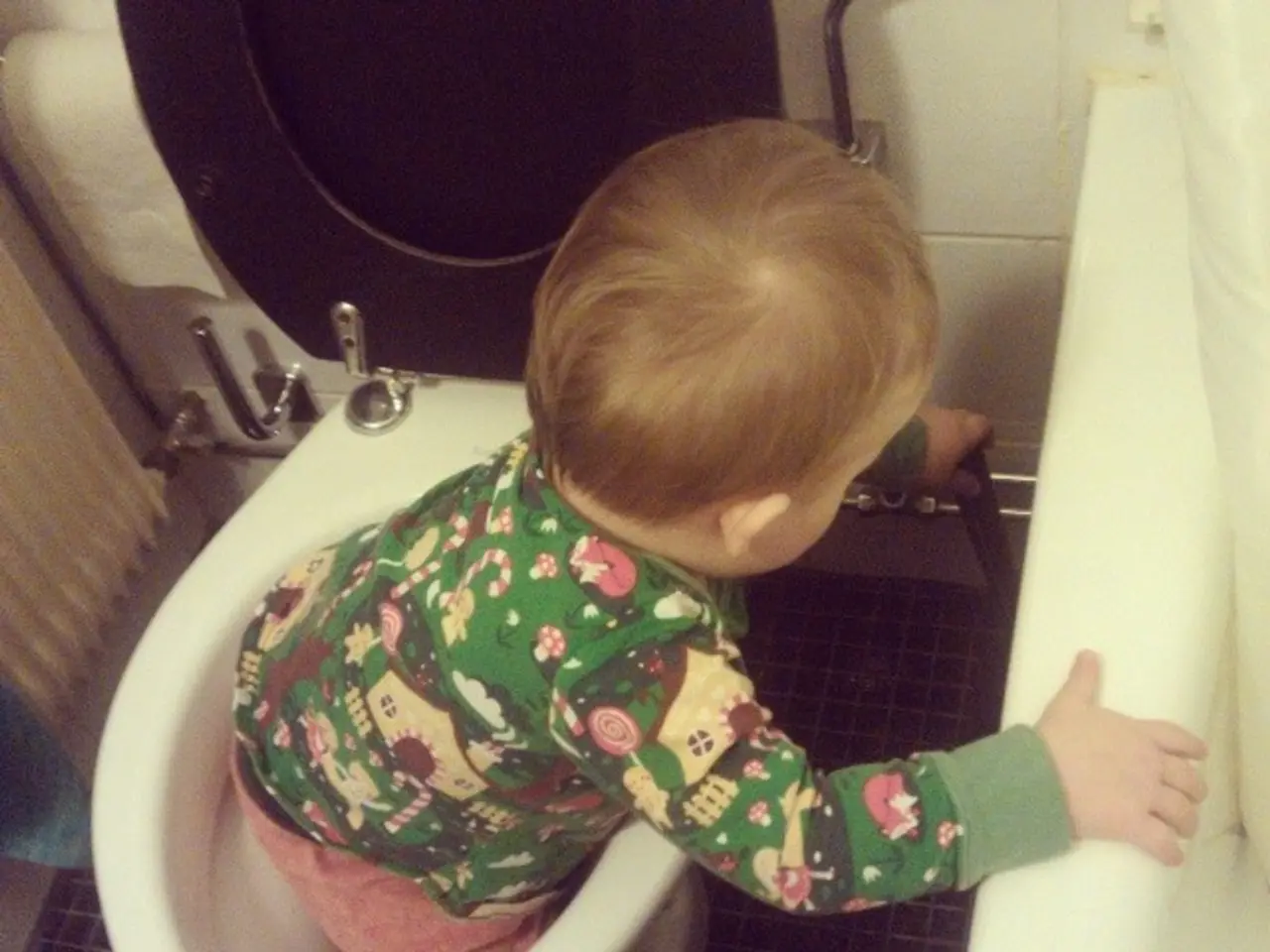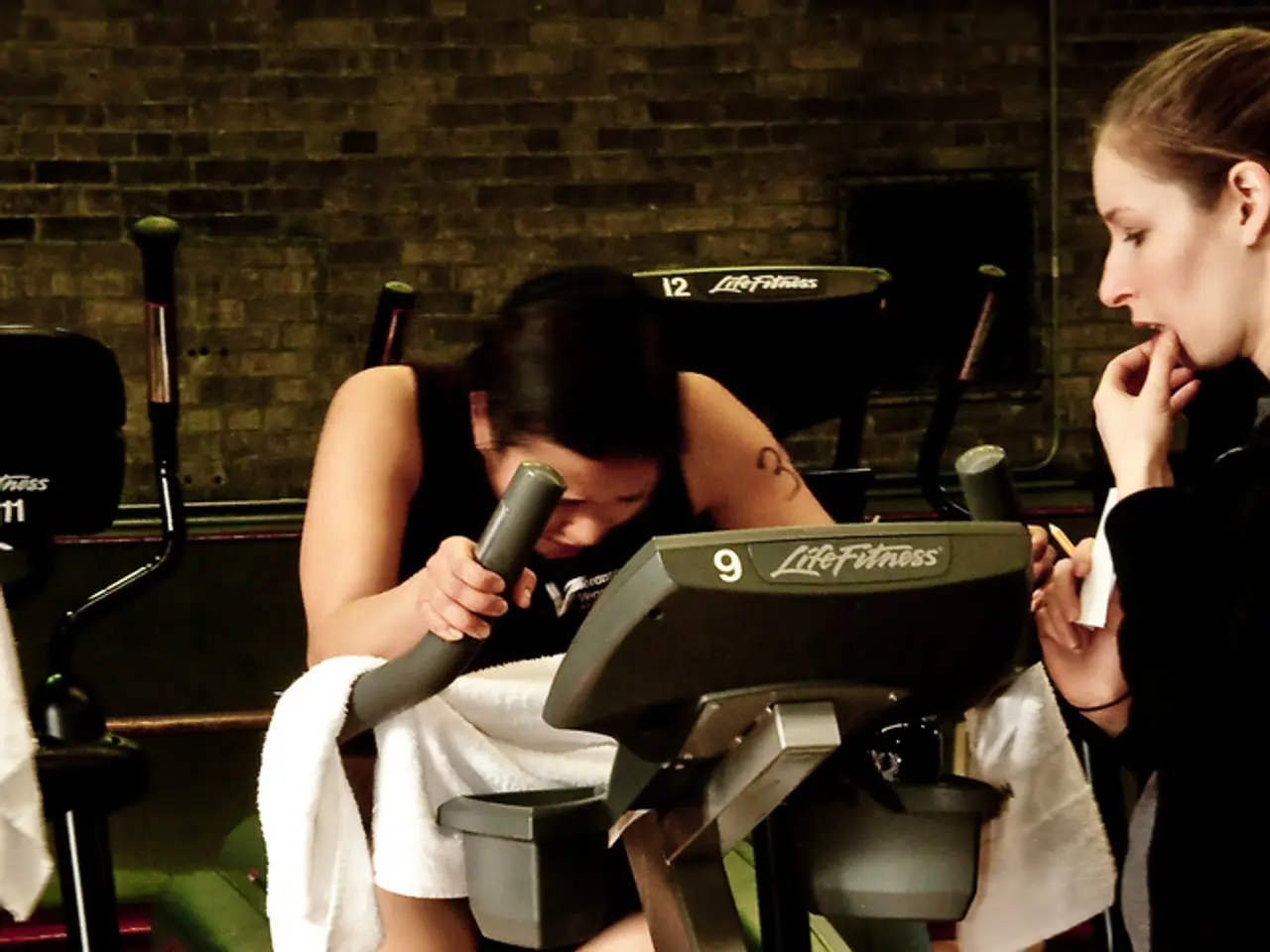Urgent Struggle in Potty Training with Approaching Deadline
In the heart of a bustling city, Yousra Samir Imran, a dedicated mother, is learning to navigate the intricacies of potty training her three-year-old son, Ammar. As the summer sun sets over their home, Yousra finds herself reflecting on the unique journey they've embarked upon.
According to recent statistics, Ammar is not alone in his struggle. Only 44% of boys are potty trained by the age of two-and-a-half, a testament to the individuality in every child's development.
Ammar's resistance to using the potty has been a source of frustration for Yousra. Despite her best efforts, using songs, picture books, underpants, and a Peppa Pig sticker chart, Ammar has shown little interest in this new routine. His refusal to use the potty has caused Yousra to feel overwhelmed, and she confesses that real life doesn't always match what is written in her parenting books.
Yousra's anxiety is compounded as she navigates Ramadan with a young child. As the holy month brings family gatherings and traditional meals, Yousra is learning to balance her faith, her family's expectations, and Ammar's needs.
Understanding the complexities of potty training, Yousra has come to realise that children often face physical, emotional, and environmental hurdles. Too many clothing layers, constipation, lack of privacy, pressure, and normal developmental regression can all impede progress.
To help Ammar, Yousra is applying advice from experts such as Elizabeth Pantley, author of The No-Cry Potty Training Solution. Pantley advises patience, compassion, and taking breaks if nothing seems to be working. Yousra is learning to view accidents as learning steps, rather than failures, and to respond calmly without punishment or shaming.
She is also focusing on maintaining consistent routines, celebrating small successes, and reducing pressure. Yousra is letting Ammar participate in choosing potty equipment and wear easy-to-remove clothing during training. She is observing and responding to patterns, trying to prompt Ammar ahead of time to prevent accidents.
Yousra's journey serves as a reminder that children develop at their own pace, and it's important not to rush them. With patience, understanding, and the right approach, parents can better support their children through this important developmental milestone.
As Yousra continues her journey with Ammar, she remains hopeful and determined. She believes that success is never linear, and consistency is key - to keep showing up and trying. Yousra is grateful for the support of her family, friends, and health visitors, who remind her that children develop at different rates, and it's normal.
[1] Pantley, E. (2013). The No-Cry Potty Training Solution. McGraw-Hill Education. [2] Mireault, L. (2016). Potty Training: The Right Way for Your Child. McGraw-Hill Education. [3] Thompson, R. (2015). Positive Potty Training. New Harbinger Publications. [4] Hodges, K. (2017). The Potty Training Answer Book. American Psychological Association.
In her pursuit of potty training Ammar, Yousra draws inspiration from experts such as Elizabeth Pantley, who emphasizes the importance of patience, compassion, and understanding in the health-and-wellness aspect of parenting. As she juggles her lifestyle, faith, and family expectations, Yousra also incorporates elements from other potty training books like Mireault's Potty Training: The Right Way for Your Child, Thompson's Positive Potty Training, and Hodges' The Potty Training Answer Book to navigate this unique journey with her three-year-old son.




